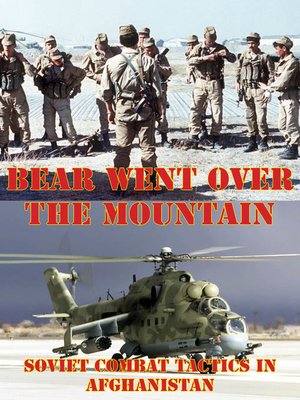
Sign up to save your library
With an OverDrive account, you can save your favorite libraries for at-a-glance information about availability. Find out more about OverDrive accounts.
Find this title in Libby, the library reading app by OverDrive.



Search for a digital library with this title
Title found at these libraries:
| Loading... |
[Illustrated with 52 maps and diagrams]
Sixteen years after its commencement and six years after its cessation, the Soviet-Afghan War remains an enigma for Westerners. Set against the backdrop of earlier successful Soviet military interventions in East Germany (1953), Hungary (1956), and Czechoslovakia (1968), and occasional Soviet military pressure on Poland, the stark military power of the Soviet state seemed to be an irresistible tool of indefatigable Soviet political power...More than a few strategic pundits and military planners envisioned a bold Soviet strategic thrust from southern Afghanistan to the shores of the Persian Gulf, to challenge Western strategic interests and disrupt Western access to critical Middle Eastern oil. Despite these fears and dire warnings, the Soviet Afghan military effort soon languished as the British experience began to repeat itself. Although appearing to have entered Afghanistan in seemingly surgical fashion and with overwhelming force, the Soviet military commitment was, in reality, quite limited, and the immense and stark territory of Afghanistan swallowed the invaders up. Across the largely barren landscape, guerrilla fighters multiplied, and, within months, the hitherto curious word mujahideen took on new meaning...To this day the Western view of the Afghan War has been clouded in mystery and shadows. Soviet writers have presented Westerners with a mixture of political diatribe, military fable, allegory, and analogy, set against the backdrop of few facts. Westerners have recounted the war based on this Soviet material, sketchy mujahideen accounts, the reports of the occasional Western war correspondents in Afghanistan, and pure supposition. This volume, the first factual material to shed real light on the conflict, represents a unique first step in setting the Afghan record straight.






